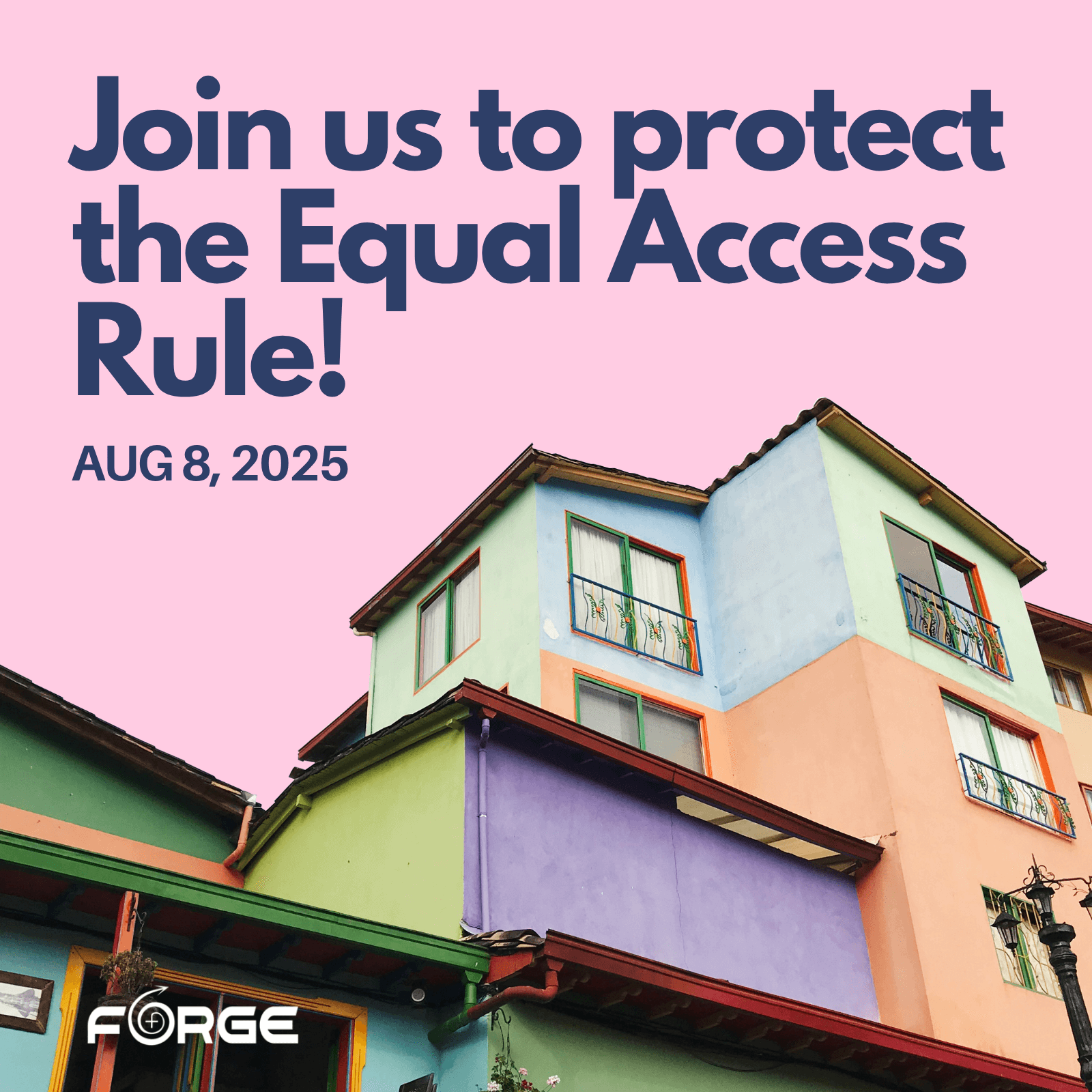Aug 8, 2025
Join us to protect the Equal Access Rule!
The Equal Access Rule (EAR) provides clear, detailed guidance and requirements to ensure that housing programs through the U.S. Department of Housing and Urban Development are available to all eligible individuals and families. EAR is one of the few federal protections that protects transgender and nonbinary individuals.
The federal government has issued orders to halt enforcement of the rule, and it is anticipated that they will try to rescind or amend the rule. Typically, such substantial federal rule changes include a public comment period where individuals and organizations can provide input on the rule.
It is critical that communities prepare to save the Equal Access Rule. FORGE is joining with the National Alliance to End Homelessness, the National Resource Center on Domestic Violence, SAGE, and many others to advocate for this important protection.
What the Equal Access Rule does
The Equal Access Rule ensures that the U.S. Department of Housing and Urban Development (HUD)’s housing programs are open to all eligible individuals and families, regardless of family composition, sexual orientation, gender identity, or marital status.
Originally designed to ensure that a variety of family types could access shelter arrangements without being separated, the EAR was expanded to ensure it specifically and clearly included trans/nonbinary people as well. The EAR also protects people who are part of non-traditional family structures.
Learn more from the National Alliance to End Homelessness. https://endhomelessness.org/resources/policy-information/huds-equal-access-rule/
How the Equal Access Rule protects survivors
“As the National Alliance to End Homelessness (NAEH) points out, “the Equal Access Rule sets a standard definition of family that is self-defined by any group of people presenting for assistance, with or without children, and irrespective of age or relationship” (2025).This is critical for survivors of domestic and sexual violence with non-nuclear family structures, such as queer and trans couples, blended families and households that include one or more extended family members, and families headed by two unmarried partners, who may already face barriers in accessing shelter or housing.” – The National Resource Center on Domestic Violence
Our role in protecting the Equal Access Rule
Continue to provide equitable services to trans/nonbinary survivors.
The Equal Access Rule is still in effect. You can also access FORGE resources to learn more about effective advocacy for trans/nonbinary survivors.
Educate your communities on the Equal Access Rule.
Education can help people prepare to submit comments to protect the EAR. It can also help people understand the importance of the rule and ensure it is being utilized now.
Share stories.
A coalition of advocacy groups is gathering stories about the benefits of equal access in housing and services. If you or someone you know has faced barriers accessing shelter and housing resources based on gender identity, sexual orientation, or marital status—or has benefited from more equal access to housing and services—please fill out this questionnaire.
Prepare to submit a public comment.
It is anticipated that HUD will issue a public comment period, though the timing of this is unknown. Comments can be made anonymously or not, and by individuals and organizations. Start considering your comment today, and begin to talk with others who can also submit comments.
The more comments that get made the better.
Sign up for NAEH Advocacy Alerts.
To stay informed about ways you can defend the Equal Access Rule, please sign up for the NAEH’s Advocacy Alerts. The NAEH can keep you updated on developments in the Administration and provide talking points and opportunities to weigh in with decision makers. (National Alliance to End Homelessness, 2025)

